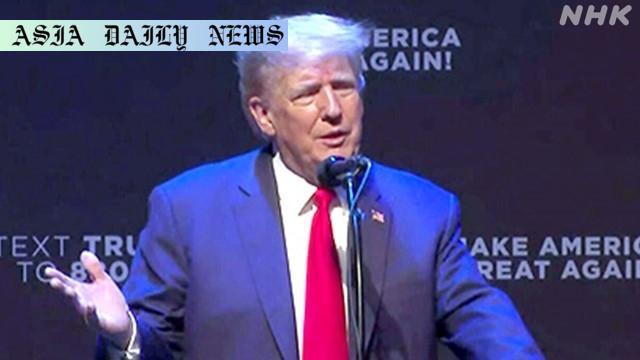US President Donald Trump to discuss economic policies and global economy impacts at the World Economic Forum in Davos.
- President Trump to deliver a virtual speech at the World Economic Forum in Davos.
- Focus on global economic impacts of his administration’s policies.
- Concerns among leaders about upcoming tariffs and US withdrawal from Paris Agreement.

Introduction
The World Economic Forum (WEF) in Davos, Switzerland, renowned for gathering thought leaders, political figures, and global business executives, is expected to turn its attention to the policies of US President Donald Trump as he prepares to address the forum virtually. His policies, which have sent ripples across various sectors, are expected to take center stage as political and business leaders analyze their implications on the global economy.
Trump’s Administration Policies: A Global Perspective
President Trump has made significant changes to US policies since taking office. His administration’s stance on international trade, climate, and industrial strategies has heralded a paradigm shift. Major concerns have been raised by world leaders concerning anticipated tariffs on imports from Mexico, Canada, and China. These tariffs, some argue, pose the potential to disrupt international trade dynamics and create stumbling blocks for long-term economic collaborations.
Moreover, the Trump administration’s controversial decision to withdraw from the Paris Agreement has raised alarms regarding environmental commitments. Many participants at Davos foresee both economic and ecological ramifications from the retreat, as collaborating nations scramble to meet global climate change objectives without US support.
The Economic Impact of Tariffs
Tariff proposals on international trade partners, including Mexico and China, aim to prioritize American businesses. However, these measures have drawn sharp criticism from global economic leaders, who argue that such trade barriers could spiral into retaliatory actions. This fear of a cascading trade war is unsettling multinational corporations and smaller economies that rely on the stability of global trade networks.
US Withdrawal from the Paris Agreement
Trump’s decision to pull the US out of the Paris Agreement has reverberated globally. The agreement, a universal framework designed to combat global warming, requires collective action from signatories to limit the global temperature rise. The absence of US backing raises critical questions about global unity on climate change and could hinder international momentum toward ecological preservation.
Mixed Reactions at Davos
The World Economic Forum participants have expressed mixed sentiments on President Trump’s policy agenda. Some applaud his America-first approach to reviving domestic industries and fostering local economic growth. However, an evident shadow of concern looms over Davos as economic leaders grapple with the potential fallout on cooperative initiatives and partnerships that underpin the global economy.
Closing Thoughts
While Trump’s virtual address is yet to unfold, the anticipation of his dialogue leaves room for both hope and apprehension. His policies signify a clear intention to safeguard US interests but, simultaneously, challenge the essence of globalization. As the world awaits his speech, the stakes remain high, and the outcomes unpredictable. Davos and the broader economic community stand at a crossroads, pondering the long-term impact of the Trump administration’s decisions.



Commentary
An America-First Approach: Boon or Bane?
President Trump’s approach to governance emphasizes prioritizing American interests. While this strategy certainly targets domestic growth, its implications on the broader global stage are multifaceted and complex. With significant shifts in trade and environmental policies, the US is carving a path that functions as both a challenge and opportunity for global economic structures. The America-first agenda has its merits – strengthening local industries and shielding jobs – but this comes at the cost of weakening international alliances and fostering isolationism.
A Divided Response Among Global Leaders
The upcoming Davos address will likely spotlight these policies and provide a clearer narrative of the Trump administration’s goals. Yet, one cannot ignore the subtle fractures emerging within global economic coalitions. Small and developing nations may find themselves particularly vulnerable in the face of threatened trade systems or shifting environmental responsibilities. Cooperation or resistance – policy reactions will undoubtedly vary across nations.
The Need for Unity Amidst Shifting Policies
While political and business leaders evaluate the ripple effects of US policies, one thing remains certain: the need for cohesive action on global issues. Be it combating climate change or maintaining trade stability, global unity is indispensable. The Davos forum is an excellent stage for fostering dialogue and bridging gaps. Perhaps through open dialogue and understanding, participants will uncover a roadmap for mitigating challenges posed by such policy shifts.